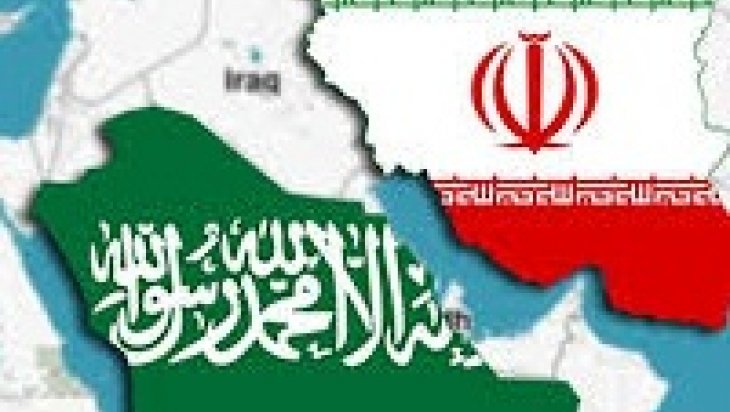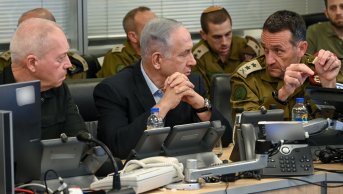A Destructive Rivalry

Saudi Arabia and Iran are two powerful states with different political project, ambitions of regional hegemony and different approaches to the current world order. The rivalry between the two protagonists has had very negative consequences for the region. Neither Iran nor Saudi Arabia qualify as model countries regarding political or economic development, their engagement in the Syrian civil has only prolonged and worsened the conflict, and their covered policies remain unhelpful as well.
Until recently, Iran has been lurking in self-inflicted isolation because of its troubled relationship with the U.S. and its nuclear program, while Saudi Arabia has been thriving well integrated into international politics due to its official compliance with the rules of the current world order and its close relationship with the U.S. From these different positions, the two states have promoted different regional policies.
However, the international nuclear deal with Iran and some long-term trends have changed the preconditions of the rivalry from a mutually accepted stalemate to a tense situation based on a different balance of strength. Iran has strengthened its position by means of the nuclear deal, which provides a greater room for maneuver and improved economic prospects. In contrast, years of reliance on decreasing oil revenues, poor budgeting and political mismanagement have left Saudi Arabia in an unenviable position, aggravated by still growing U.S. worries over the relationship. Other developments could be added to these developments such as the Russian reappearance in Middle East politics, but the most important element in the power shift is the parties’ changed relationship with the U.S., which is still the only superpower.
In the region, most Arab states are in deep troubles, busy reconstructing themselves after the Arab Spring of 2011 or trying to implement less dramatic reform processes. For some years, Saudi Arabia was trying to take the leadership, most visibly in the Arab League, while Iran was absent in many regional issues. However, the stage has been re-organized and at the same time, a power shift has occurred between Iran and Saudi Arabia. Both provide for increasing insecurity and risks of conflict.
The current confrontation comprises several dimensions from the Syrian civil war over oil production and prices to the execution of Nimr al-Nimr/the arson of the Saudi Arabian embassy in Teheran. Furthermore, the confrontation involves many actors as both Saudi Arabia and Iran have been engaged in regional issues, most notably the civil war in Syria and to a lesser extent in the Yemen.
However, none of the two protagonists are in a position to start a war from a rational point of view. On the one hand, Iran is re-entering international politics and has not yet profited from its new economic prospects. On the other hand, Saudi Arabia would antagonize the U.S. and, in spite of its high tech weapons and rhetorical support from other Arab states, it would be risky to engage in a war.
From a less rational point of view, Saudi Arabia is nearly cornered and in need for a scapegoat enemy to divert attention from domestic political failures. Still, the Saudi power elite can only guess about the American response and the outcome of the U.S. presidential elections next year. The elite is also in the need of winning time to launch a restructuring of its economy and political system if it should entertain any hopes for its future wellbeing.
The risk of war cannot be excluded from scenarios but particularly Iran has a strong incentive not to engage in any dramatic conflict at the very verge of reentering international politics after its post-revolution isolation. Metaphorically, the time horizon of Iranian politicians was once compared to that of rug weavers by a former Israeli ambassador to Tehran, suggesting that the politicians have a long-term perspective.
The reentry of Iran in regional politics – assuming that Iran complies with the demands forwarded in the nuclear deal – may be compared to the reunification of Germany in 1989. The strengthening of Germany as a bigger player in European politics stoked many worries of conflict. However, sensible political leaders, a cooperative Germany and a determined U.S. produced a peaceful and constructive change in Europe in the aftermath of the end of the Cold War.
A similar development is less likely in the Middle East but sensible political leaders and U.S. commitment are still decisive factors for a peaceful regional development, but also intra-regional politics is vital.
According to conventional IR theory, power shifts creates unstable conditions and calls for testing. To dampen the effects of the recent power shift between Iran and Saudi Arabia and preventing the restoration balancing from turning into war, two issues in particular needs to be addressed.
First, Iranian compliance with the nuclear deal needs to be carefully monitored as does the Iranian foreign policy behavior in general – both in their own right, but also to prevent Iran from becoming complacent and ready to cash in from its improved position.
Second, reforms are urgent in both Iran and Saudi Arabia. In Iran, young people can hardly wait to join freedom values, trade and other engagement in the world order. In Saudi Arabia, however, the very political system is uncertain as the wealth that previously helped the elite legitimizing itself is threatened, and the level of political rights is next to medieval. Consequently, the Saudi elite should be encouraged to implement political and economic reforms rather than resorting to desperate foreign policy moves – creating foreign scapegoats to rally a discontented population behind its own leaders is becoming obsolete.
The buck probably stops in the White House. The U.S. is the actor most able to convey these messages to Iran and Saudi Arabia, and both countries might well listen. In spite of its anticipated strengthening and increased cooperation with China, Iran has still a lot to lose if it really wants to re-enter international society. Saudi Arabia has all to lose from antagonizing the U.S. Hopefully, preparation for the presidential elections in the U.S. will not overshadow the need for proper management of international affairs.
This article was published in Ortadoğu Analiz journal with the title of "A Destructive Rivalry”



